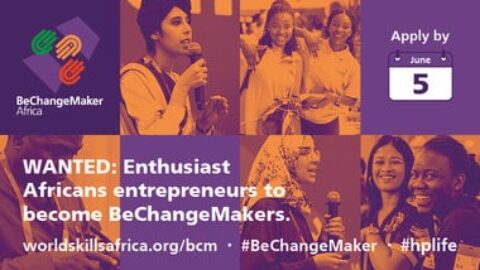In spite of my grand sounding title, I have 2 clarifications to make. First that my phrase ‘unrebuked mediocrity’ is inspired from Femke’s brutally honest assertion that “the widespread celebration of mediocrity” is the norm in Nigerian and that we are trudging under the weight of ‘unrebuked underachievement’. Secondly, my article is concerned mainly with JAMB, the UTME and mystery of university education in Nigeria. So then, let us proceed.
In 2001 I sat for the JAMB/UME as the universities entry exam was then called. My main target then was to score at least 180 points out of the possible 400. I knew that 180 points might not be sufficient to guarantee my desired entry into the Ahmadu Bello University; but I reasoned that if I scored 180 points but fail to get a place in the university, I could blame it on the “system” and not on myself. Happily for me, I scored more than 180 and the rest is biography.
In my day, students had a few strategies to maximize their UME points: the best one was to avoid mathematical subjects if they were not compulsory. This was because the use of electronic calculators was banned in the exam and so it was too risky to have studied aided by calculators and then ditch them during the exam. The best students back then scored 300-350 points. Today, electronic calculators are allowed, the tone of the equations remained as they were in my day and yet the best students are still in the neighbourhood of 300-350 points. Of course private tutoring and improvements in secondary education (such as Montessori and ACE curricula) which are the norm today have done nothing to up the JAMB top scores.
Following the release of the results of the 2013 JAMB/UTME exams, I crunched the numbers as reported by The Punch and this is what came up. First, 1,644,110 candidates registered for the exam but 47,974 did not turn up so 1,596,136 students sat for the exam to seek entry places in Nigeria’s universities and other tertiary institutions.
Think about the numbers: 1.6 million is about 3 times the population of Cape Verde, for example – and that is the number of Nigerians seeking graduate education. You won’t get my concern until you recall that combined; all Nigerian universities could only offer starting places to about 100,000 students. So then, whatever the outcome of the 2013 UTME exam, almost 1.5 million candidates (over 90% of all applicants) will not go to the university this year because there are no places for them and there are no student bursaries or loans they could take to study abroad.
We are told that 10 students scored 300 points and above – unfortunately we don’t know exactly how much the best candidate scored. But let’s put things in perspective: 300 out of possible 400 points translate to a 75% score. Here is the situation, 1.6 million students took a test and only 10 students (representing 0.00063% of total) scored 75% of the possible points. These are the geniuses and we shall call them the next Einstein(s) although we know that 75% score really doesn’t measure up to Albert Einstein. Next, we learn that 127,017 candidates (7.9578% of total) scored between 1 and 159 points, permit me to name this category Akpors – but don’t ask me why. Lastly, we know that 40,692 (2.5494% of total) results were withheld for suspicion of malpractice, perhaps they will be released later.
So out of the total 1,596,136 who sat for the exam, let’s subtract 10 (Einsteins); subtract another 127,017 (for Akpors); subtract another 40,692 (results withheld) and then we are left with 1,428,417 candidates (or 89.4922%) scoring between 160 – 299 points (I have no name for this group).
Looking closely at the summary above, it soon dawned on me that 90% – or 9 out of every 10 candidates scored between 160 and 299 points – put differently, 90% of the candidates had scores from 40% to 74.75%. In many situations such as in job interviews, if you scored 74%, you will find yourself swiftly eliminated by stiff competition; in some education systems, the pass mark in regular class examinations fall between 60 and 70%. But just before you scream at 1.4 million Nigerians for this score, we should check what the pass mark is in the Nigerian educational system. This is called the ‘cut off mark’ and is the threshold below which candidates can forfeit hope of gaining entrance into the university for the given year.
A quick reading of the 2013 cut off marks of Nigerian universities available here shows the following startling revelation: first, a vast majority of universities have their cut off mark at 180 points (that is 45%) of the possible 400 UTME points. Secondly, in many cases, there is a difference in the entry score for science and arts students; so students applying for courses in the arts are expected to score 180 while those in sciences are to score 200 points. Lastly, the highest cut of point is 240 points and applies only to those seeking to study medicine at the University of Illorin. 240 points might seem unrealistically high at first glance especially since majority of universities and courses require only 180 points. But you see, 240 points translate only to 60% of the score.
Let us get this straight; if a student goes into the university at 180 points and maintains the 40-percent-momentum, he/she will come out with a CGPA of 2.00 (out of possible 5.00). On the other hand, the University of Illorin candidate who begin MBBS with 240 points and keeps a 60-percent-momentum will graduate with a 3.00 CGPA. Theoretically speaking, the Nigerian graduate with 3.00 has a slim chance in the labour market while the other with 2.00 could easily qualify as “unemployable” given the conditions in the labour market in Nigeria – though shall not approach the Nigerian labour market armed with a “slim chance” though. To stand a fair chance in the Nigerian labour market, graduates must score a CGPA of 3.50 (second class, upper division or 2-1) or 4.50 (first class). I am not naïve as to think that those who score 3.50 and above will automatically get jobs; but I think that those who have such grades but fail to get jobs could legitimately blame the almighty “system” and could behold their certificate without regrets.
Have you noticed a problem here? Candidates go into the university on a 40% performance (except for the few Illorin doctors who must cough up 60%); then after at least 4 years of university education, they graduate and the labour market requires a CGPA score of 3.50 (that is 70% of the possible 5.00). Shooo – excuse my pidgin English; but why does anyone require 70% performance in 4 years from graduates whose best performance in 12 years of primary and secondary education is a mere 40%? This is the mediocrity that I argue is not rebuked in Nigeria’s education system.
Really, I think that overall, the demands on the lower levels of the education system in Nigeria are too low. Increasingly, Nigerians are beginning their career with advanced education – including those who signed up as drivers with PhDs. Applicants are told in accents clear and still that they must distinguish themselves from the pile. In my opinion, the threshold for entry into the labour market in Nigeria will continue to rise since there is surplus supply of labour with the current criteria. To give the next generation a fighting chance in life and in the Nigerian economy, it is time to raise the threshold of academic performance from the day-care all the way to JAMB/UTME and in the university. If 40% performance will not put bread on the table, then it must be rebuked anywhere it pops up. If we welcome a mediocre 40% performance into the universities, we have no moral right to rebuke the same 40% performance only four years later when it turns up on the job waiting list.
Winding Down: This column will be discontinued after 28th May 2013. Find out more here
_______________
Nengak Daniel Gondyi is presently a post-graduate student in International Migration and Ethnic Relations at Malmö Högskola in Sweden. He is also a Senior Programme Officer of the Abuja based Centre for Democracy and Development, CDD. He holds a Bachelors’ in International Studies from the Ahmadu Bello University. Read his full profile here.






